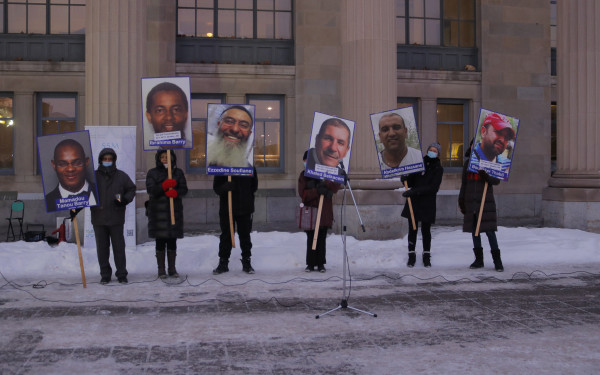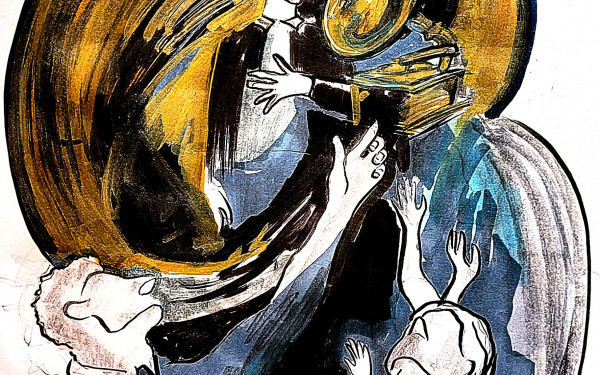Selective Mourning: Terror and the Media Across the World
On the morning of March 22, 2016, the ground in Brussels trembled, and so did the rest of the world. The densely populated city in Belgium was the site of three suicide bombings. The attack claimed the lives of 34 people and wounded over 300 others.
Rushing out from across the globe were calls for compassion and solidarity, bracing the reeling city. However, Brussels isn’t the only city which has felt the shock of terrorism.
Less than two weeks before, a car bomb was driven into one of the most crowded areas in Ankara, Turkey. The bombing killed 37 people and left 125 injured. That time, however, ripples weren’t sent throughout the world.
Mainstream media coverage was scarce. Affirmations of sympathy and unity didn’t swoop down to absorb the pain spilled on Turkish city streets. Although the aftermath was no less grim than Brussels, it inspired far less attention.
It would be untrue to say that Western media provided no coverage of the atrocity in Ankara—they did, just not much. Especially not compared the 24 hour, minute by minute, weekend long reporting that immediately followed the attack in Brussels.
This trend isn’t new. Western media has been criticized for being unbalanced in its reporting when the violence is less close to home.
When the bombings in Paris gripped the hearts of so many, the bombing in Lebanon, occurring the day before, flew under the radar. Over the past several months, in fact, Iraq, Mali, Pakistan, Nigeria, Burkina Faso, and the Ivory Coast all have been sites of attacks. Yet little is known about those tragedies.
They appear not to rank as high for reporters and editors in the mainstream press. One wonders why some atrocities—which are no less horrific—seem to be met with a far more disinterested response. One of the reasons is geography—another is race.
There is a sense in which distance—and difference—softens the blow of tragedy. Some might suggest that differential media coverage is understandable, or even expected. Perhaps it’s only natural that news media is going to focus its gaze toward what seems to directly impact its audience.
After all, Paris is a frequent destination for Canadian and American citizens. The attack on Brussels was carried out by an Islamic terrorist organization with which the U.S. is in a fierce, armed conflict. Neither is the case for Ankara.
So, perhaps Western media is simply moving to the tune of market signals.But if that’s the case, then that is part of the problem. If masked gunmen storming hotels with AK47s and executing 14 people in the Ivory Coast isn’t priced high enough by the market, then market mechanisms need readjustment—a big one.
Among the deceased in the Ivory Coast attacks was a five-year-old boy who, despite pleas for his life, was riddled with bullets at point blank range. Where was the outrage, the sadness, for the Ivory Coast?
Since the Paris attack, hundreds of bombings have shaken parts of the globe, but nowhere else shook with them. This relative lack of attention by the media in response to the Ankara bombings got people’s attention. As the media focused its attention exclusively on Belgian victims of terror, viewers increasingly began to question their motives.
This is especially true regarding Africa, where there has been lively debate surrounding bias in foreign reporting. As the New York Review of Books put it in 2012, Africa is “plagued by countless nasty little wars.” Yet, there is little Western demand to hear about them, so the media does not supply the information.
It’s not just economics, though. This phenomenon reflects a broader cultural theme in Western thought—one that tends to colour the content and character of coverage about Africa. There is a common view that African countries are all on the same lost, helpless, war-torn, disease-stricken boat—and that boat is sinking.
It is a theme that could be seen on the front page of The Economist’s issue on Africa in 2000 which read, in bold print: Hopeless Continent. These types of headlines have taken on the tradition of, among others, historians such as the “esteemed” Oxford Professor Hugh Trevor-Roper.
“Perhaps in the future, there will be some African history to teach,” Roper once said. “But at present there is none: there is only the history of Europeans in Africa. The rest is darkness.” His language was deliberately mocking. That was in 1963, and the language used today is not so different.
Terrorism speaks a vivid language, a language of violence. It says that the world is a big, dangerous place, full of fear and hate. That type of language casts the world in a shadow, dark and uncertain. It obscures our vision of reality, and does so in a way strikingly similar to that of legacies of oppression.
That is why we need media to help us make sense of that world. When we ignore events that happen in Africa, we say that we don’t care whether the victims vanish or are destroyed.
The media may lag behind in developing such a cosmopolitan view. They cannot, by and large, be entirely responsible for reconstructing connections that have been hollowed by explosions or lost in the complexities of difference. Some gaps can be filled only by empathy.
As news consumers and citizens of the world, we have to be ready to uncover the unspoken assumptions that define what is “newsworthy.” It’s a question of whether or not we are willing to journey far enough to see the dignity of all the victims—and whether we are willing to journey further within ourselves.
In Ankara, there were boys and girls, old men and women, buses, and cafes—it was all there. Whether we will choose to see the pain that unites the world is a question that comes full circle, back to ourselves.





_600_375_90_s_c1.jpg)
_600_375_90_s_c1.jpg)